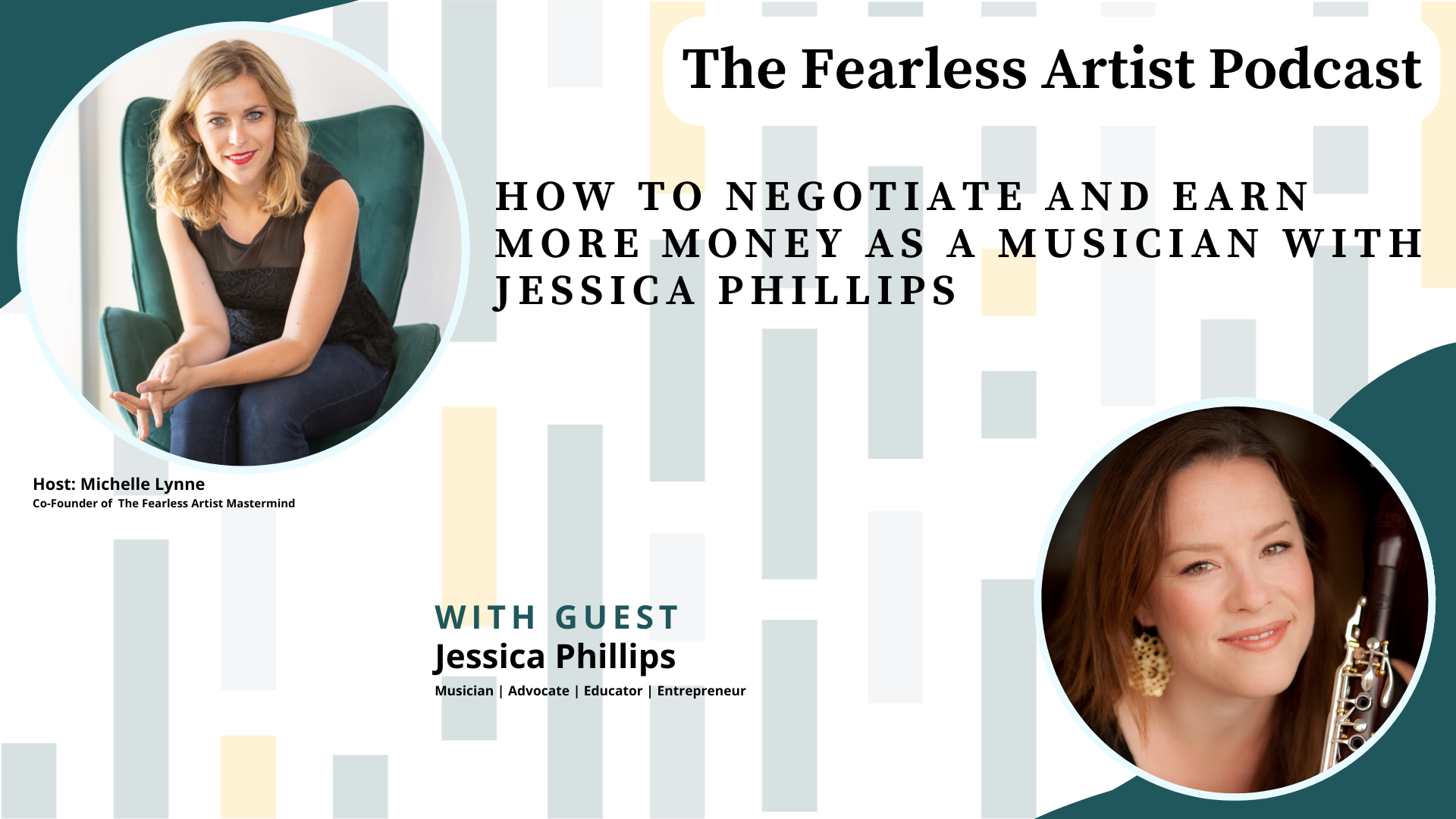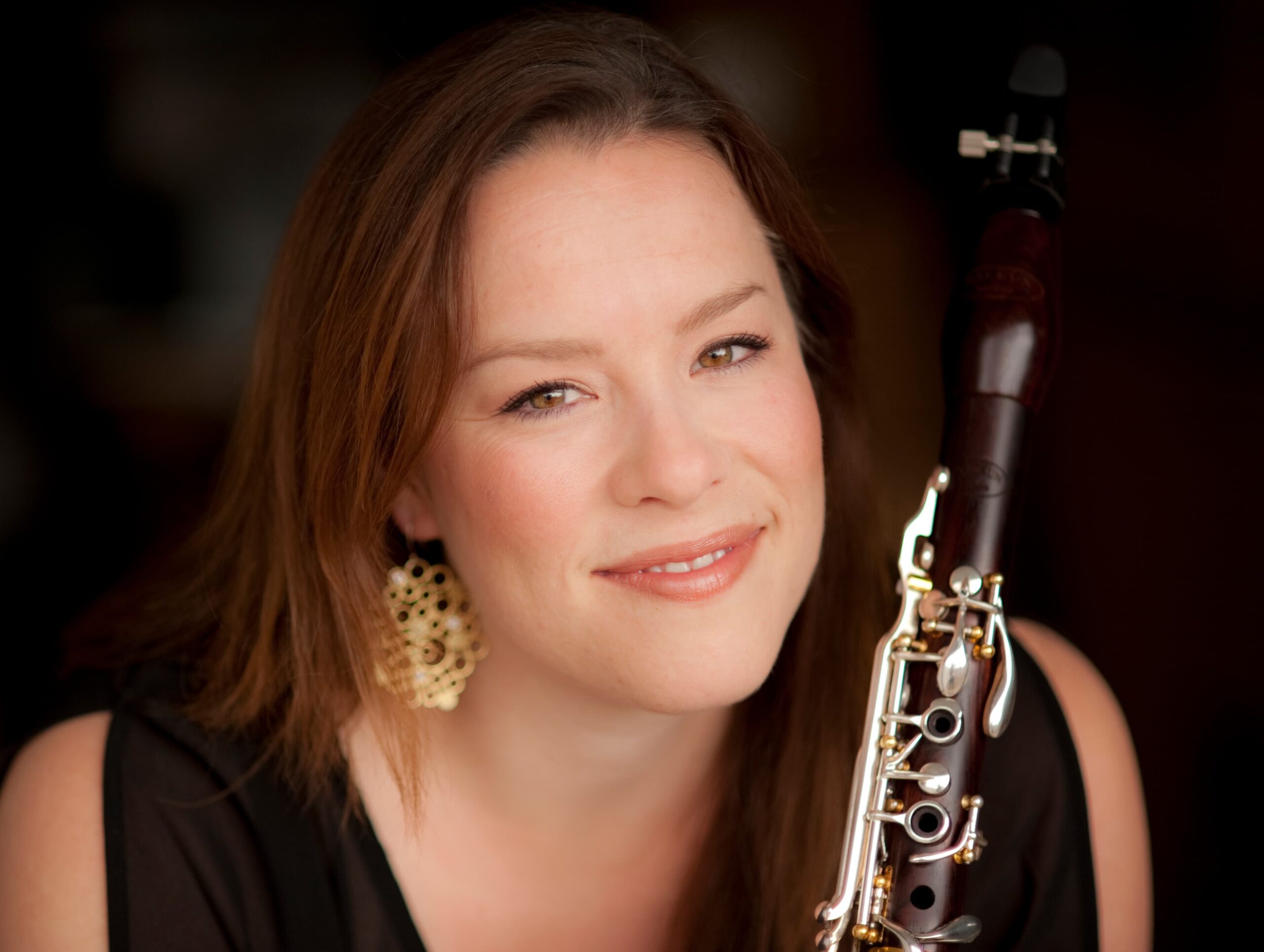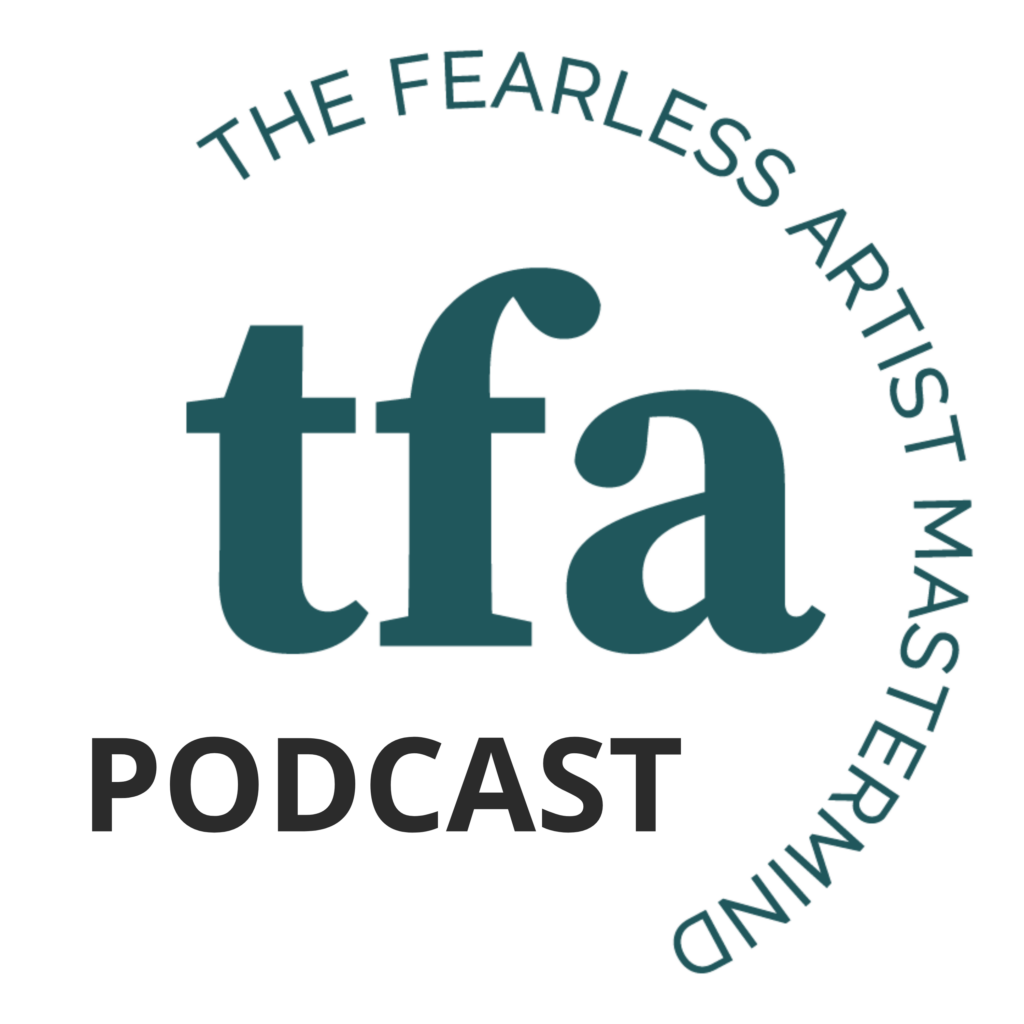How to negotiate and earn more money as a musician with Jessica Phillips

Guest:
Jessica Phillips
Musician | Advocate | Educator | Entrepreneur
Innovative leader and musician with a demonstrated history of working in the performing arts industry. Versatile educator in the classroom, bringing modern entrepreneurial skills to the next generation of artists. Passionate about inclusion, diversity, equity, accessibility, and leadership, as well as deepening community engagement initiatives in support of the future of the arts in society. Agile in complex environments and adept at managing culture change through collaborative processes and consensus building. Skilled in nonprofit organizations, labor relations, contract negotiation, strategic public relations, and clarinet performance.

Subscribe to The Fearless Artist Podcast
Intro/Outro music by Michelle Lynne • Episode produced by phMediaStudio, LLC
